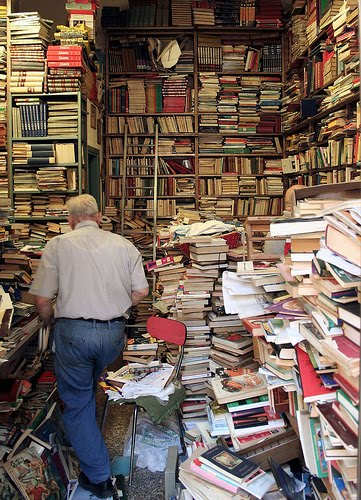 A lot has been written about the state of writing. Or, more specifically, about the state of the business of writing. Meaning the publishing industry. I’m not going to write about that here. I’ve been posting interesting stats and reports and blogs on my Facebook page (which you are free to visit and “like” in the ridiculous lexicon of Facebook) but then I came across this post from a book designer which pointed out a big problem. Or at least the problem as I see it.
A lot has been written about the state of writing. Or, more specifically, about the state of the business of writing. Meaning the publishing industry. I’m not going to write about that here. I’ve been posting interesting stats and reports and blogs on my Facebook page (which you are free to visit and “like” in the ridiculous lexicon of Facebook) but then I came across this post from a book designer which pointed out a big problem. Or at least the problem as I see it.
Basically, just because you can write doesn’t mean you should. In other words: just because you now have the ability to create a book doesn’t mean you should create a book. Creating a book is work. You need to put in the work. If you don’t, you’re part of the problem.
This sounds a bit harsh, I know, and, well, so what, publishing is now a relatively easy and cheap activity, the publishing business is not just in flux but in panic, we read books on different devices further democratizing the process, prices are all over the place (quick: how much should a “book” cost?) and, from what I can gather, we’re reading more than ever.
That’s all good. Everyone is a publisher now. That’s not just good, that’s great. That’s both power and empowerment.
But as anyone who has had to listen to Aunt Millie recite her poetry knows, not everything that is created is any good.
Just because you can doesn’t mean you should. I said it again.
For years I’ve been saying the publishing industry is where the music industry was about a decade ago. This is probably still true. (A good place to check out the debates within the industry – on a weekly basis –can be found here). But writers and musicians are not analogous. Even with the enormous changes in the music industry, a musician still needs to be able to play music or sing or put notes together to create something someone else might call music. Not everyone thinks they can do this. (And not only that, but the vast majority of musicians now earn their keep by performing and charging money for it, something that is not really open to writers, no matter how entertaining a reader they might be).
But almost everyone who has achieved even minimal literacy can write. And by write I don’t mean they can craft stories or poems, I mean they can write a sentence, they can string words together, they can in their own way convey a thought through words. You might not think so, but as long as they can make themselves understood, they are communicating. We all communicate somehow. But that doesn’t mean we can all write properly. Or put that together in a “book.” Or even publish. Publishing a book is a commercial activity, regardless of your intention, it is a form of manufacturing, the creation of a product, and we’ve unleashed a bunch of folk who are embarking in this activity without knowing the first thing about the business. I’m not talking business with a B. No. If anything, I say, if you’ve done your homework, more power to you. Whatever you might think of something like Fifty Shades of Gray, you can’t argue with its success. You can, no one’s stopping you, but be prepared to sound stupid. However, publishing a book without knowing what goes into a “book” is like showing up for a job interview in an office wearing a Speedo. You might be the most talented person in the room, but your lack of awareness is going to tell others something about you. Most of it enormously unflattering.
There have always been too many books. I’m not saying there are too many – though there probably are (for those who won’t click on the link, this is the money quote: “In 1998, there were roughly 900,000 active titles listed in Books in Print. And today there are 32 million.”) There have also always been bad books. But now there is an amazing quantity of writers just putting it out there because they can. I think everyone needs to pause for a second before they hit “send.”
The world gets noisier. More full of stuff. We have enough stuff. At some point, the thrill will die out. Maybe. As readers, we’re going to have to wade through more and more dreck to find those jewels. As writers, we have to hope that our voices can be heard. Same as it ever was.
2 Comments